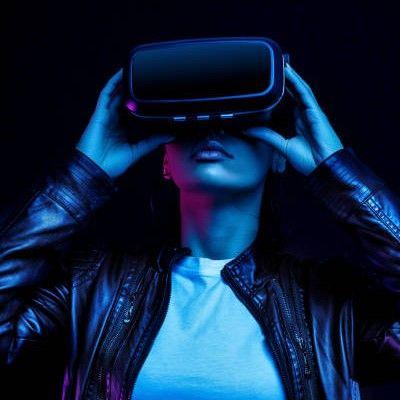Virtual Reality Trends in 2022
Written by Luis Paradela|Posted on April 6, 2022

Virtual reality technology has been around in some form or another since the early ‘90s. While full of promise, VR adoption has been very slow over the intervening decades, but that looks all about to change. With the newly rebranded Meta throwing its weight behind virtual metaverses as part of the vaunted Web 3.0, VR is seeing renewed interest from companies across various industrial and financial sectors as well as gaming and entertainment. Improvements to hardware and accessibility from manufacturers have also contributed to increased adoption and familiarity with VR and AR among the general public. But which trends will define the development of virtual reality in 2022?
Affordability
The hefty price tag of the hardware has been a major barrier to entry for consumers when it comes to VR. All the equipment required for a high-end VR experience could easily total around $1,000, not including an accompanying PC! With the upcoming metaverse applications in mind, manufacturers are competing to produce an affordable headset for mass consumption that can serve as the average person’s entry point to the technology. Meta itself likely sells its flagship hardware, the Meta Quest 2, at a loss, and as the sector becomes more competitive, we can expect to see more fully complete VR kits priced around the $300-400 range.
Standalone Headsets
Early VR sets were display and tracking systems that needed to be connected to a computer that actually ran the applications. They needed to be physically tethered via cable arrays to a powerful PC that provided the processing power to run graphically demanding software. Separate tracking sensors known as base stations were required for body tracking accuracy. The new generation of headsets includes standalone ranges, with onboard CPUs and tracking sensors. The original Oculus Quest was a game-changer in this way, but competitors such as the HTC Vive Focus or Pico Neo ranges show the wider industry pushing in this direction.
Integration with Online Services
As we prepare for Web 3.0, e-commerce and social media platforms will integrate VR and AR elements to enhance the experience of users who will be using the next range of affordable headsets. Think try-before-you-buy avatars, and games linked to one’s social media accounts, clothes or furniture, virtual meeting rooms, workshops, design studios, and VR tours of hotels and tourist attractions. Upgrading an existing e-commerce business to include VR features is more easily accomplished by outsourcing to an experienced development team.
Blockchain Partnerships
Blockchain, cryptocurrencies, and non-fungible tokens (NFTs) are slated to be important components of the Web 3.0 metaverse, in which digital items will be represented and interacted with via VR and AR technology. Consequently, many blockchain companies are collaborating with VR developers and vice versa to create metaverses, many of which resemble multiplayer VR games with a native cryptocurrency and VR objects verified by NFTs.
Developers who are proficient in both blockchain and VR technologies are especially valuable for this purpose, as they are able to both create the virtual objects and integrate them into a blockchain and crypto-economy for gaming, collection, or metaverse uses.
Mixed Reality
Virtual reality can be considered the most immersive end of the extended reality (XR) technology spectrum. On the opposite end, augmented reality (AR) superimposes digital items over the real world. The space in between can be considered mixed reality (MR). Because different levels of immersion are best for different customers and situations, forward-thinking platforms will try to integrate interactions across the spectrum to capture a wider customer. Building VR, AR, and MR requires different hardware, design, and development skills. Hence, a specialized team with experience in those 3 fields is a must for the success of your projects. Use of an experienced VR development company is recommended to design features for the appropriate level.
Developing VR Software Solutions for Your Business
VR and AR technologies, in general, will be an increasingly important space for companies looking to integrate themselves into the economy of the future, especially with metaverse and Web 3.0 services. VR development requires advanced knowledge of graphics development and interactivity design, and an experienced development team is crucial in creating VR experiences that actually add value to a product or service.
At Accelone, we specialize in helping businesses integrate VR and AR into their products and processes in ways appropriate to their industry and long-term goals. Our nearshore software development company includes a team of veteran augmented reality and virtual reality developers with proven experience in building high-quality 3D models and designing complex interactions for expertly designed VR and AR experiences and enhancements. To discuss how we can assist your business upgrade using VR, contact us online or call us at (800) 863-6814.

Luis Paradela
Chief Development Officer
Co-Founder
Buenos Aires
View profile